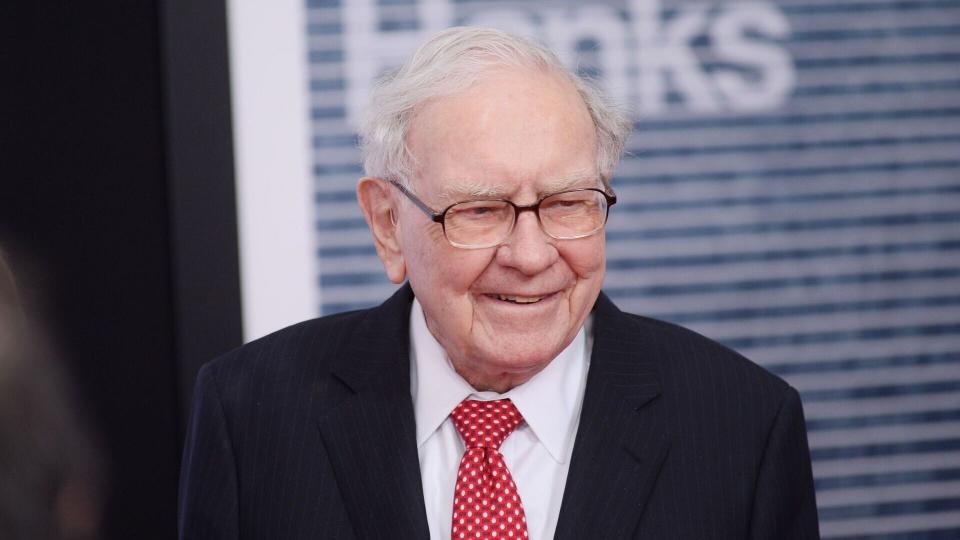What Does Retirement Look Like for Billionaires?

Retirement can be a challenging process for average Americans, who may have to learn to live on a lot less money than they had when they were working. According to a recent GOBankingRates survey, 53% of American adults have less than $10,000 saved. While people age 65 and up are better prepared, it’s still only about 7% of them who have $750,000 or more saved for retirement.
Learn: 12 Ways the Rich Save Money That Poor and Middle Class People Don’t
Find Out: 3 Things You Must Do When Your Savings Reach $50,000
Billionaires, on the other hand, rarely have to worry about having enough money to retire. Instead, retirement is often about shifting priorities and focus. There are around 735 billionaires in the U.S.; at some point, each of them will have to think about what retirement looks like.
GOBankingRates spoke with experts about what retirement looks like for the uberwealthy.
They Think About Their Legacy
Because billionaires have more money than they can possibly spend in a lifetime and often are earning dividends and interest on that money, many become very concerned about the financial legacy they will leave, said Josh Stamer, chief strategy officer for Anonymous Philanthropy, a firm that advises wealthy clients on how to drive greater impact in their philanthropy.
“Legacy is a really interesting word,” Stamer explained. “For some people, it means that they’d love to see their name on the side of a building. For others, legacy means something completely different.”
He said billionaires are as different from one to the next as you can get.
“Some want to retire and go fly fishing or play golf every day and embrace that concept of retirement,” he said, “but, for those billionaires who have made their money through entrepreneurship, it’s tough for them to [find] an off switch.”
For Stamer’s clients, philanthropic legacy is really important. “A lot of them have been very active in causes that they care about in their lifetime and they want to put structure in place to see those causes supported after they’ve gone.”
Discover: Here’s How Much You Need To Earn To Be ‘Rich’ in Every State
They Worry About Their Heirs
Billionaires also worry about what to leave their heirs, but in a different way from non-wealthy people, Stamer said. “Many billionaires are concerned with taking care of their families, but they want to not give them too much so that they’ll be lazy.”
He finds that between the extremes of “controlling their money from the grave” and not caring much what happens to their money lies the middle ground of the average billionaire.
“Typically they want to put some guardrails in place and make sure the causes they supported in life are still met,” Stamer said. “While they often want to bring their heirs into the fold, a lot are amenable to having a specialist or expert at the wheel.”
They Take Up Philanthropy as a Second Career
It’s common for billionaires to treat philanthropy as a “second career” as they hit retirement age, Stamer said.
“They’ll say, ‘I’ve been really successful in my earning years, and now that I’m in my distribution years I want to apply all the things that made me successful in earning to my legacy and my giving.”
These folks will embrace what he called “entrepreneurial philanthropy.” In other words, he added, “In their earning years, it was more passive check writing — and now they can be more active and experiential in their philanthropic concerns.”
They Have Unparalleled Financial Security
Billionaires’ retirements are characterized by an unparalleled level of financial security, said Jake Claver, a financial expert, qualified family office professional and founder of Syndicately.
“Their portfolios are not just diversified but often contain significant investments in private equity, hedge funds and sometimes in rare assets like art or historical items,” he said. “This is a stark contrast to the more traditional retirement portfolios of stocks, bonds and mutual funds seen with regular retirees.”
They Continually Grow Their Money
Additionally, since billionaires have so much money to work with from the start, Claver said, they tend to have a team of financial advisors who continually optimize their investment strategies, ensuring their wealth not only sustains their lifestyle but also grows.
Claver said, “This allows them to engage in more significant philanthropic efforts or legacy-building activities, which are less common among the general population.”
They Have Tremendous Leisure Opportunities
The lifestyle of a billionaire retiree is markedly different from the average person’s, Claver said. “It often includes multiple homes across the globe, access to private jets and an entourage of staff, including chefs, personal trainers and medical professionals.”
Thus, their retirement can be a perpetual state of luxury travel and high-end experiences, far from the more modest travel and leisure activities of an average retiree.
“Additionally, they have the means to pursue unique hobbies or passions,” Claver said, “whether it’s collecting rare items, investing in space travel or owning sports teams. These are luxuries that go beyond the financial reach of most individuals.”
They Continue Doing Work They Love
The truth is that “unlike the traditional concept of retirement, many billionaires stay engaged in their businesses, driven by passion and the thrill of impact and innovation,” according to Michael Ryan, a financial expert at Michael Ryan Money. “Their work is often intertwined with their identity, making the concept of retirement less appealing,” he said.
The truth is that for billionaires retirement might not even resemble traditional retirement; with that much money, a billionaire can do whatever they want for the rest of their lives.
More From GOBankingRates
This article originally appeared on GOBankingRates.com: What Does Retirement Look Like for Billionaires?

 Yahoo Finance
Yahoo Finance 